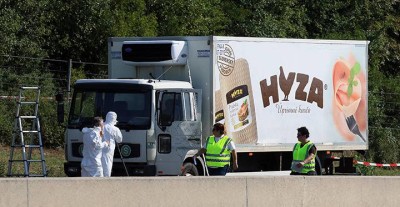The Weekly Summary
In the general news, in Europe, the refugee crisis grew as a truck with 71 dead immigrants was found in Hungary. They, and millions of others, were fleeing ISIS territories in Syria and Iraq heading for Germany, France, etc. through Greece. In the U.S., the stock market crashed on Monday, then rebounded, all mostly due to the threat of the Fed raising rates next month. Supporting the need for a September raise were good revised Q2 GDP numbers that showed the economy grew 3.7% in the Spring. Wages also increased.
In healthcare business news, Medtronic (MDT) paid $458 Million for a privately held mitral valve developer called Twelve. JNJ sold off its Splenda artificial sweetener line. Also, Acorda (ACOR) shares spiked 30% when the patent office denied challenges to its Ampyra. Hedge fund tycoon Kyle Bass had initiated the challenge.
From the FDA, Amgen’s (AMGN) PCSK9 antibody drug Repatha to lower LDL was approved. Recall, Regenron’s (REGN) Praluent was previously approved. Both drugs, costing more than $10,000 a year, will likely be used off-label and challenge the healthcare system as drug prices have now become the biggest source for inflation.
Also, Novartis (NVS) received approval for an expanded label for Promacta to treat thrombocytopenia in pediatric patients. A drug-class warning was added to DPP-4 inhibitors (Merck’s (MRK) Januvia, AstraZeneca’s (AZN) Onglyza, and Lilly (LLY) Boehringer’s GmbH) for serious joint pain. Lastly, the agency granted priority review for Sarepta’s (SRPT) eteplirsen to treat Duchenne muscular dystrophy. The drug already has orphan drug status, meaning it will cost more than $100,000 a year.



